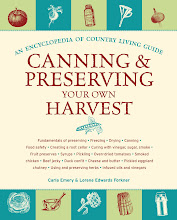Friday, September 14, 2012
About Flatulence
Time to get earthy. As the old poem says, "Beans, beans the musical fruit--the more you eat, the more you toot! Beans, beans, they're good for your heart, but the more you eat, the more you fart!" Yes indeed, the problem to be faced up to with eating dried beans is their gas-manufacturing tendency.
My mother-in-law really pushes beans and is always telling me how much protein they contain. Her son has firm control of his system and can deposit his total flatulence (gas) in the bathroom alone and behind the closed door in a maximum of 3 daily visits. I apparently come from a different--uncontrolled--genetic line. My mother had this problem and so do I. When it hits me, that's it. I've been in church singing a hymn and wanting to die with shame because everybody around me was wondering who had done the terrible thing, and I was afraid they'd figure it out just from the look on my face. At least the hymn covered the sound effects, but what about the many other times I make sounds which, to my embarrassed ears, resemble the backfire our 1-ton truck going down the mountainside to town with the muffler off?
And beans have a cumulative effect. One unfortunate week I served chili for supper. The next day Mike happened to lunch where they served him chili again. That evening I was sick in bed and asked my 8-year-old daughter, Dolly, to feed everybody something. It turned out she decided the best answer was to open another jar of chili. In the middle of the night Mike announced there was a distinct possibility he was going to die. He didn't, but now we are careful about spacing our bean meals. (That was the week when Mike was in a conference room with a group of executive types, and even he was overcome by pressure to the point that the whole proceedings stopped while people wondered where it was all coming from.)
Since the first issue of this book came out, I've received in the mail a lot of helpful advice about how to keep beans from causing gas. J.O. Pettit, the salt-rising bread expert, told me to keep a cruet of vinegar on the table and add a pour of vinegar to each serving of beans. Janet Kieffer wrote me that her Mexican cooking teacher said 1 t. olive oil in a batch of beans helps take out the gas. Mrs. George Baker of Floresville, TX, wrote me to advise adding 1/4 t. ginger to 1 lb. beans in cooking them.
Seventh edition. Now I have still more advice. Julia Reynolds from Galvin, WA, says if I blanch and freeze the dried beans as I would string beans, that will help the gas problems. My friend Lenna says for fewer explosions, don't soak them overnight. Angie says discarding the soaking water and cooking in fresh water helps. The scientists say if you eat beans regularly and increase your bean consumption gradually, your body will become accustomed to them and the tooting will be diminished. Lois Rumrill from Forks of Salmon, CA, says "I always cook my dry beans upside down. That way they don't make you pass gas, they just make you hiccup!"
Why Flatulence? Ninth edition. It's because beans contain certain natural sugars called ogilosaccharides in generous amounts, and when oligosaccharides encounter certain of the natural bacteria that make their home in everybody's digestive tract (normally unknown and unnoticed), gas gets manufactured. You can't change the bean. You can't change the microbe. You can't change the human be'in. That's just how it is. Best we should be kind to one another about it. But you can choose a low-flatulence legume!
[Adapted from "Legumes" in Chapter 4: Garden Vegetables, which addresses growing, preserving and cooking phaseolus and non-phaseolus beans. Illustration copyright 1994 by Cindy Davis]









1 comment:
Really great post and i will definitely visit through given link.
Post a Comment